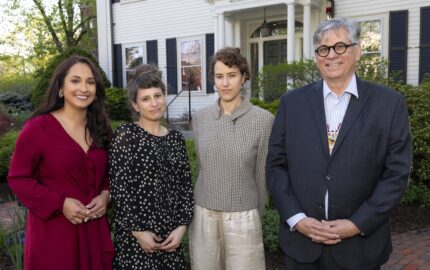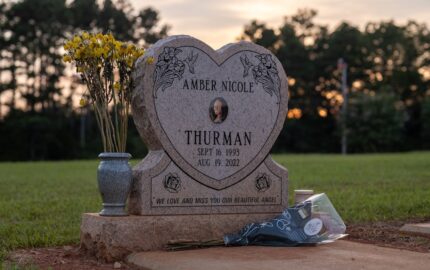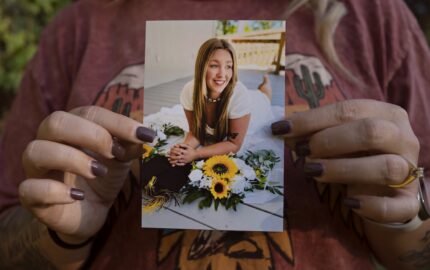CAMBRIDGE, MA. (June 3, 2003) — Mark Chavunduka, the founding editor of The Zimbabwe Standard, has been selected by Harvard University's Nieman Fellows to receive the 2003 Louis Lyons Award for Conscience and Integrity in Journalism.
Chavunduka, a reporter and editor whose struggle for editorial independence became a rallying point for journalists in Zimbabwe and sub-Saharan Africa, died on Nov. 11, 2002, following a long illness. He was 37 years old. At the time of his death, he was chief executive officer of Thomson Publications Zimbabwe, the publishers of Parade Magazine.
The 2003 Class of Nieman Fellows cited Chavunduka, a Nieman Fellow in 2000, for his courage, integrity and outstanding role and contribution to the development of the privately owned press in Zimbabwe in the face of repressive opposition from government authorities. The award was presented to Chavunduka's sister, Schona Chavunduka-Buranda, at ceremonies at Harvard University earlier this month.
In 1991 Chavunduka became editor of Parade, Zimbabwe's largest news magazine. At 24 he became the youngest editor of a national publication in Zimbabwe. In 1997 he was the founding editor of The Zimbabwe Standard, an independent Sunday newspaper that offered an alternative to the monopoly of government-owned weekly newspapers. The paper became an instant success.
In January 1999 Chavunduka and Ray Choto, the chief reporter of The Zimbabwe Standard, were arrested and brutally tortured by the military after the paper published a story claiming 23 officers of the Zimbabwe National Army had been arrested following an alleged attempted coup against President Robert Mugabe.
Chavunduka and Choto were beaten with pieces of wood and rubber sticks, subjected to electric shock all over their bodies and had their heads wrapped in plastic and submerged in a water tank.
The two were held despite court orders for their release and protests from around the world against their detention. Military authorities ignored three court orders — including one from Zimbabwe's highest court — to release the two journalists. After nearly two weeks in detention, Chavunduka and Choto were released on bail and charged with "publishing a false story capable of causing alarm and despondency."
At the time of his death, Chavunduka had returned to Parade Magazine as chief executive officer after he bought the majority of shares in its publishing company. He became one of the first entrepreneurs to emerge from the ranks of Zimbabwe's journalists.
The Lyons Award honors Louis M. Lyons, a beacon for journalistic integrity during his career, including 25 years as curator of the Nieman Fellowship Program. The award carries a $1,000 honorarium. Of this amount $500 will be shared by Chavunduka's children and the remaining $500 to the Zimbabwe Chapter of the Media Institute of Southern Africa (MISA) for its outstanding work in campaigning for press freedom in Zimbabwe.
Twenty-three individuals, groups and organizations have received the Lyons award since it was established by the 1964 class of Nieman Fellows. The class initiated the award in honor of Lyons' retirement as Nieman curator. Lyons headed the Nieman program from 1939 to 1964. The award's mission is to recognize and honor displays of conscience and integrity by individuals, groups or institutions in communications.
Chavunduka, a reporter and editor whose struggle for editorial independence became a rallying point for journalists in Zimbabwe and sub-Saharan Africa, died on Nov. 11, 2002, following a long illness. He was 37 years old. At the time of his death, he was chief executive officer of Thomson Publications Zimbabwe, the publishers of Parade Magazine.
The 2003 Class of Nieman Fellows cited Chavunduka, a Nieman Fellow in 2000, for his courage, integrity and outstanding role and contribution to the development of the privately owned press in Zimbabwe in the face of repressive opposition from government authorities. The award was presented to Chavunduka's sister, Schona Chavunduka-Buranda, at ceremonies at Harvard University earlier this month.
In 1991 Chavunduka became editor of Parade, Zimbabwe's largest news magazine. At 24 he became the youngest editor of a national publication in Zimbabwe. In 1997 he was the founding editor of The Zimbabwe Standard, an independent Sunday newspaper that offered an alternative to the monopoly of government-owned weekly newspapers. The paper became an instant success.
In January 1999 Chavunduka and Ray Choto, the chief reporter of The Zimbabwe Standard, were arrested and brutally tortured by the military after the paper published a story claiming 23 officers of the Zimbabwe National Army had been arrested following an alleged attempted coup against President Robert Mugabe.
Chavunduka and Choto were beaten with pieces of wood and rubber sticks, subjected to electric shock all over their bodies and had their heads wrapped in plastic and submerged in a water tank.
The two were held despite court orders for their release and protests from around the world against their detention. Military authorities ignored three court orders — including one from Zimbabwe's highest court — to release the two journalists. After nearly two weeks in detention, Chavunduka and Choto were released on bail and charged with "publishing a false story capable of causing alarm and despondency."
At the time of his death, Chavunduka had returned to Parade Magazine as chief executive officer after he bought the majority of shares in its publishing company. He became one of the first entrepreneurs to emerge from the ranks of Zimbabwe's journalists.
The Lyons Award honors Louis M. Lyons, a beacon for journalistic integrity during his career, including 25 years as curator of the Nieman Fellowship Program. The award carries a $1,000 honorarium. Of this amount $500 will be shared by Chavunduka's children and the remaining $500 to the Zimbabwe Chapter of the Media Institute of Southern Africa (MISA) for its outstanding work in campaigning for press freedom in Zimbabwe.
Twenty-three individuals, groups and organizations have received the Lyons award since it was established by the 1964 class of Nieman Fellows. The class initiated the award in honor of Lyons' retirement as Nieman curator. Lyons headed the Nieman program from 1939 to 1964. The award's mission is to recognize and honor displays of conscience and integrity by individuals, groups or institutions in communications.


